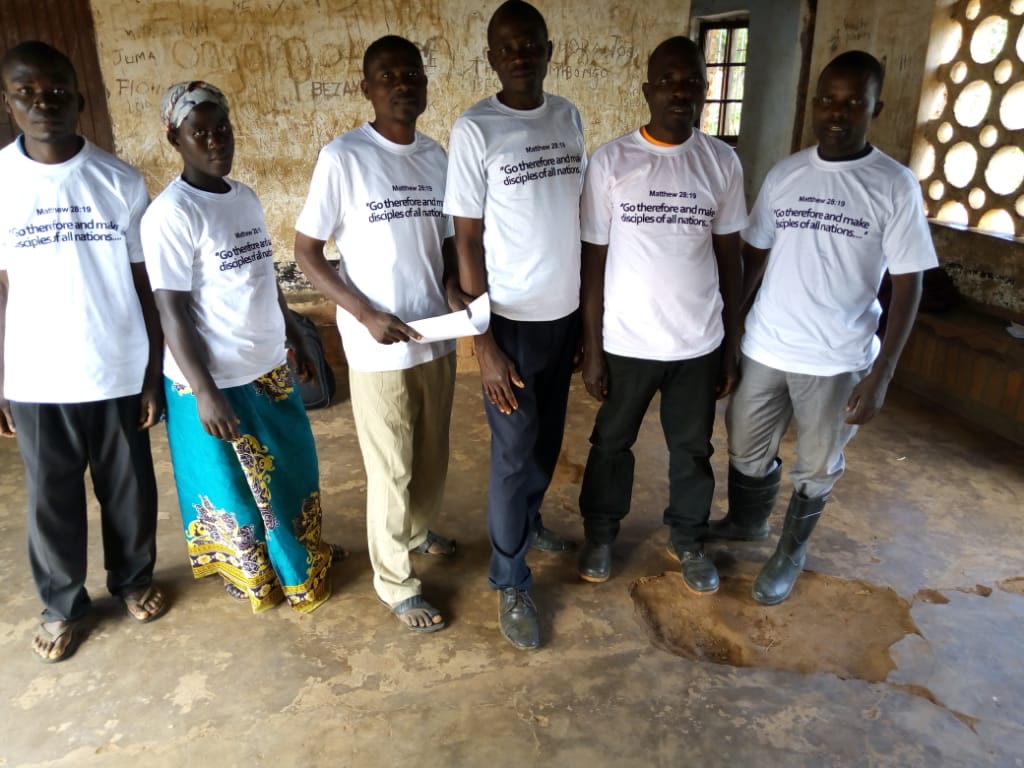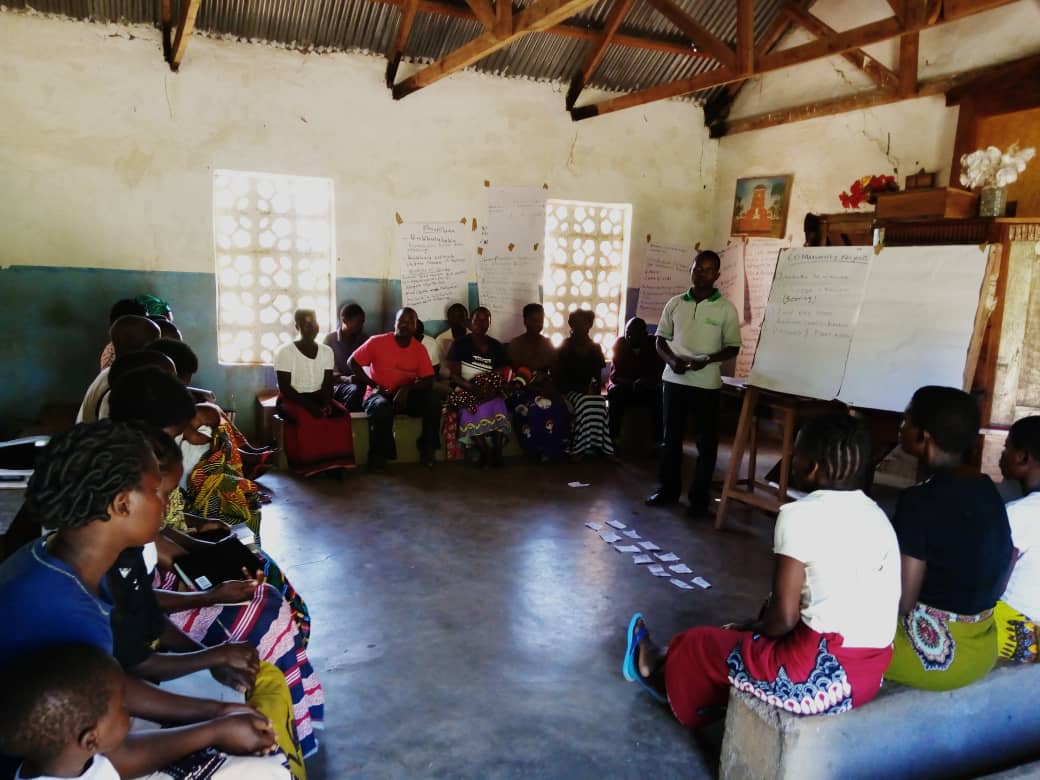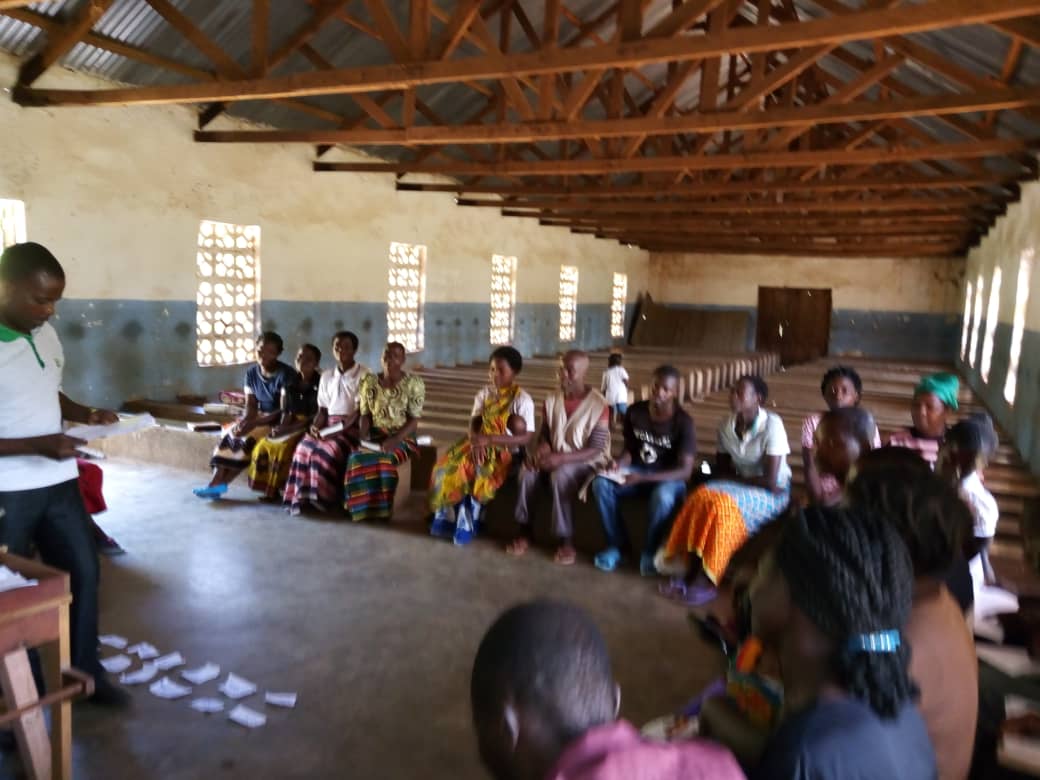A Letter from Jeremy and Luta Garbat-Welch, serving in Malawi
June 2019
Write: Jeremy Garbat-Welch
Write: Luta Garbat-Welch
Individuals: Give online to E200515 for Jeremy and Luta Garbat-Welch’s sending and support
Congregations: Give to D507577 for Jeremy and Luta Garbat-Welch’s sending and support
Churches are asked to send donations through your congregation’s normal receiving site (this is usually your presbytery)
William Chimwezi has been the coordinator for the Community Health Evangelism (CHE) Program with Nkhoma Synod since the end of 2017, after the unexpected passing of Elida Mphedwa. Chimwezi, as I call him by respectfully using his surname, is studying for a Bachelor of Theology at Josephat Mwale Theological College, the theological training institute for Nkhoma Synod. Chimwezi works with Nkhoma Mission Hospital as an assistant chaplain and was trained as a CHE trainer during the first round of trainings completed in 2014.
The Nkhoma CHE program, or CHENKHO, as Chimwezi has dubbed it, began in 2014 and currently works in eight villages that are part of two different but adjacent group village areas, both within the catchment area of Nkhoma Mission Hospital. Village hierarchy in Malawi consists of a local village (composed of 40-50 families), a group village (composed of 10-12 villages), a senior group village and finally the Traditional Authority. Chimwezi’s mudzi (his home village) is located within Khokwa — one of the group villages participating in CHE.
Since Chimwezi has taken on the coordinating responsibilities of the CHE program, I have been working alongside him to mentor him in the overall CHE process and philosophies, helping him to troubleshoot issues that community members bring to him; write funding proposals and reports; and manage budgets. He has eagerly embraced the challenge before him, convinced that CHE will bring transformation to his communities. Last September, we were able to find funding to send him to Kenya to attend the East Africa CHE Internship — a five-week internship that delves deeper into the implementation of CHE. On returning, Chimwezi shared with me that we needed to survey the community to understand the needs. I was excited about this revelation and had ideas of how the communities could be surveyed. Chimwezi decided to do a written, door-to-door paper question survey — a standard survey you might see in the U.S. I had my doubts about the effectiveness of this method and whether it could be completed, but through his leadership and encouragement, Chimwezi mobilized the Community Health Evangelists (the home visitors). In a week, all homes had been surveyed. I was amazed! It is a significant undertaking, especially when considering the limited formal education of the Community Health Evangelists.
Chimwezi and I worked together to analyze the results, and I found myself disappointed with how much need was still apparent, even after several years of working in the communities. Many of the basic household-level changes encouraged through CHE (such as a pit latrine, hand-washing areas, kitchen garden) were clearly sorely lacking. If Chimwezi was disappointed, he didn’t show it to me. He took it as a matter of fact and said, “Now we know clearly where we need work.” While I speak the mantra of pang’ono pang’ono (little by little) to people, Chimwezi lives it.
As I write, I’m sure that I’ve written a story like this before, highlighting the slow nature of CHE. But it’s a message that bears repeating, because this slow nature shows more long-term impact than many quick projects. An MP for England was recently quoted in the news as saying AID has failed Malawi. “The British Government has spent something in the region of 4.5 billion pounds over the past 50 years, and Malawi is, if anything, poorer than it was when we started.” I tend to agree — billions of dollars have been channeled into Malawi, but Malawi continues to be one of the 10 poorest countries in the world. Daily life is still full of struggles. I continue to hold on to hope and believe that slow change will bring lasting results.Even before getting the results of the household-level survey, Chimwezi had begun to look more closely at each community and how they were engaging with CHE. He began thinking about more strategic ways of engaging the local trainers; looking at the relationships between trainers and the communities they were serving and distances trainers travelled; and reflecting on how much energy was spent engaging in communities that were not engaging the process. The survey served to confirm some of Chimwezi’s initial observations and conclusions. At the same time, Chimwezi has also felt pressured to expand CHE into new villages. Through several conversations, Chimwezi and I were able to think through how he might expand in ways that are both culturally honoring and programmatically effective. Chimwezi is hopeful for new steps that will allow CHE initiatives to go both wider and deeper. His hope encourages me.
We are grateful for the many ways you have chosen to join us in our own (sometimes slow) journey. We continue to find hope as we connect with our supporters through prayer and email and other conversations. Please continue to support us as we live here in Malawi and journey alongside Chimwezi and our other partners in the CCAP. Your prayers and financial gifts are what make it possible.
In Christ’s Service,
Luta (for the Garbat-Welches)
![]() You may freely reuse and distribute this article in its entirety for non-commercial purposes in any medium. Please include author attribution, photography credits, and a link to the original article. This work is licensed under a Creative Commons Attribution-NonCommercial-NoDeratives 4.0 International License.
You may freely reuse and distribute this article in its entirety for non-commercial purposes in any medium. Please include author attribution, photography credits, and a link to the original article. This work is licensed under a Creative Commons Attribution-NonCommercial-NoDeratives 4.0 International License.


